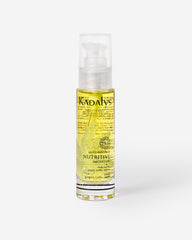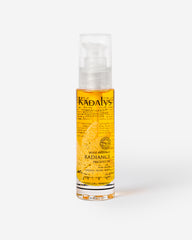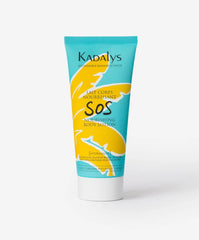
How should you protect your skin from the sun in summer?
Summer is the ideal season to enjoy the sun and outdoor activities. However, it is essential to take adequate sun protection measures to avoid damage caused by UV rays. In this article we will explain the dangers of the sun and give you tips on how to effectively protect your skin from the sun during the summer. Discover the prevention measures and essential care to keep your skin protected throughout the summer season.
SUMMARY
- Understanding the risks and effects of the sun on the skin
- Essential sun protection measures
- Taking care of your skin after exposure to the sun
Understanding the risks and effects of the sun on the skin
UV rays emitted by the sun can cause many skin problems. Sunburn is one of the immediate effects of excessive exposure to UV rays.
They can cause redness , pain and peeling of the skin and can therefore cause lasting damage to the skin. Indeed, repeated exposure to UV rays can lead to premature aging of the skin, manifested by the appearance of wrinkles , brown spots and loss of elasticity. The risk of melanoma , a type of skin cancer, is also higher in people with excessive sun exposure. It is therefore essential to understand the different risks associated with exposure to the sun in order to adequately protect your skin.
There are several types of exposure to the sun, whether during sunbathing, outdoor outings or during beach vacations. Each type of exposure requires special attention. Additionally, certain factors increase your skin's sensitivity to the sun. Skin type plays an important role in how your skin reacts to UV rays. Fair-skinned people are more likely to suffer from sunburn and skin damage . Additionally, altitude and latitude can also influence the intensity of UV rays you are exposed to. People living in areas near the equator or at high altitudes should be especially vigilant about their exposure to the sun. It is therefore important to take these factors into account for adequate protection .
Essential sun protection measures
To effectively protect your skin from the sun, here are some key measures to adopt:
- Use adequate sun protection: Choose a natural sunscreen with an appropriate SPF (sun protection factor) for your skin type . For fair and sensitive skin , it is recommended to opt for a sunscreen with a high SPF, usually between 30 and 50. These skin types are more vulnerable to UV rays and require additional protection. For darker skin tones, an SPF between 15 and 30 is usually sufficient. Although these skin types naturally have some protection against UV rays, it is important not to underestimate the harmful effects of the sun. Make sure to apply generously to all exposed parts of the body, not forgetting sensitive areas like the face, neck and feet. Re-apply every two hours, especially after swimming or sweating.
- Opt for protective clothing : Clothing with a high sun protection factor (UPF) provides an additional barrier against UV rays. Opt for light but covering clothing , such as long-sleeved shirts or light pants, which effectively protect the skin from UV rays. Don't forget to protect your eyes with sunglasses that offer UV protection.
- Avoid exposure during peak hours : Avoid exposure to the sun during times when UV rays are most intense, generally between 10 a.m. and 4 p.m. If possible, seek shade under a parasol, tree or shelter during your outdoor activities. If possible, plan your outdoor activities for early morning or late afternoon, when the sun is less strong. This will significantly reduce your exposure to UV rays and minimize the risk to your skin.
Taking care of your skin after exposure to the sun
After sun exposure, take the time to take care of your skin to repair and revitalize it.
First of all, hydration is essential to maintain the health of your skin after sun exposure. Use moisturizers appropriate for your skin type to restore lost moisture. Opt for products rich in antioxidants to help repair free radical damage. Remember to drink enough water to hydrate your skin from the inside out.
If you've gotten sunburned , apply cold compresses or take a cool bath to relieve heat and inflammation. Use soothing products with aloe vera or chamomile to calm the skin. This will help prevent flaking and promote healing in your skin. Avoid scratching the affected skin.
Finally, monitor your skin carefully for any skin changes. Watch out for dark spots , moles that change shape or color, or patches that don't heal. If you notice anything unusual, see a dermatologist for a thorough examination.
In conclusion, protecting your skin from the sun is essential to preventing long-term skin damage. By understanding the risks and effects of the sun on the skin and taking sun protection measures, you can enjoy summer while maintaining the health of your skin.













